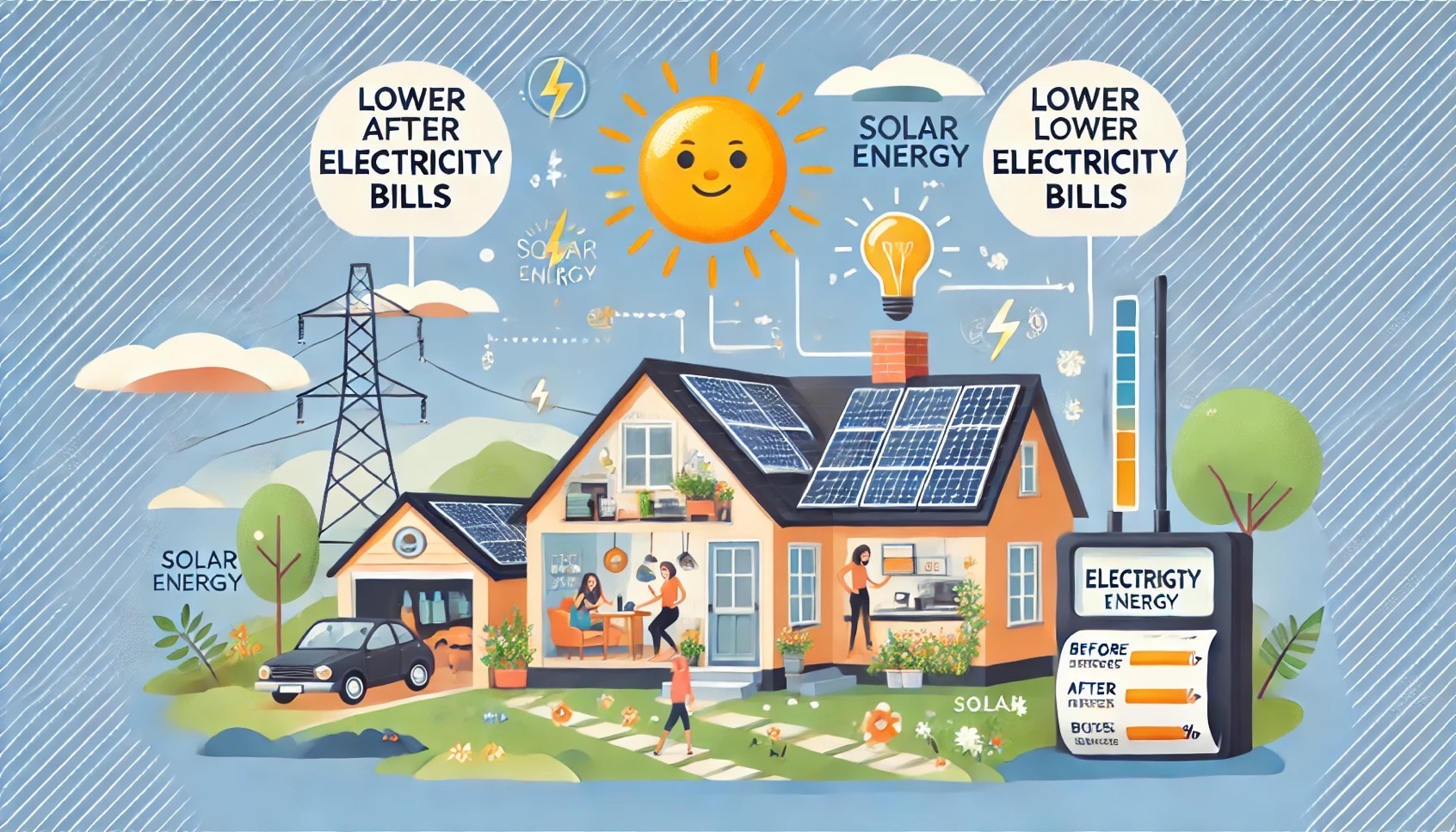One of the most attractive benefits of solar energy is its ability to reduce electricity bills significantly. By installing solar panels on your home or business, you can harness the power of the sun to generate your own electricity, decreasing or even eliminating your reliance on the utility grid.
First, let’s look at how solar panels work. Solar panels capture sunlight and convert it into direct current (DC) electricity. This DC electricity is then converted into alternating current (AC) electricity through an inverter, which is what powers your home. When your solar panels produce more electricity than you need, the excess energy is either stored in a battery or sent back to the grid, often resulting in credit from the utility company.
The more solar panels you install, the more electricity you can generate. This leads to significant reductions in monthly utility bills, as your home will need to purchase less energy from the grid. In fact, many homeowners experience savings of up to 70-90% on their electricity bills after installing a solar system.
Another factor in saving money is the Net Metering policy, which many states and regions offer. Net metering allows you to sell any excess power your solar system generates back to the grid, offsetting your energy costs. This means that even on days when your solar system generates more power than you use, you can still benefit financially.
Over time, the upfront costs of installing solar panels will pay for themselves through energy savings. The average return on investment (ROI) for a solar panel system is between 5 and 10 years, depending on your location, system size, and local electricity rates. After that period, your energy production is essentially free, aside from the minimal maintenance costs.
Additionally, many governments offer tax incentives and rebates for installing solar energy systems, making it even easier to save money upfront. The federal solar tax credit (ITC) allows homeowners to deduct up to 30% of the installation costs from their federal taxes, further reducing the financial burden.
In conclusion, solar energy is an investment that will provide long-term savings. By reducing your reliance on the grid, taking advantage of tax credits, and utilizing net metering programs, solar energy can drastically lower your electricity bills, saving you thousands of dollars over the life of your system.
